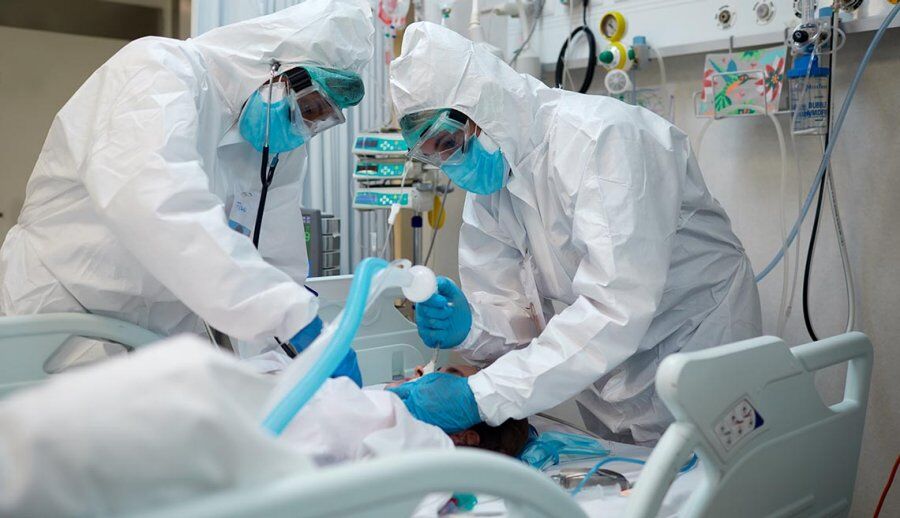Vaccine Gone Global: Who Bears the Brunt of the Booster?
Courtesy of Tempura/Getty Images
Hospitalizations rise as the Delta varient continues to prove deadly.
September 1, 2021
The Delta Variant has reinforced a need for a third vaccine but has left global leaders and health officials in disagreement. The variant has had devastating effects in India, driving its COVID-19 infections to more than 32 million in August.
It is more contagious and deadly than other variants and can infect vaccinated people, rendering the first two doses less effective. It has raised fears in the global community and has pushed scientists to create and distribute a third vaccine in July.
This month, President Joe Biden has said he expects the distribution of the third vaccine to people of all ages in hopes of avoiding another surge by September. The third vaccine can protect vulnerable patients from the Delta Variant and ensure the safety of millions of Americans, preventing another surge, but it undermines our obligations to poorer countries.
Health officials around the world have said the booster is “unethical” and “unconscionable.” The World Health Organization called for a deferral of the booster until the end of September. However, wealthy nations have said they will not wait until then. A WHO official, Dr. Michael Ryan, spoke out against the booster.
“We’re planning to hand out extra life jackets to people who already have life jackets while we’re leaving other people to drown without a single life jacket,” Ryan said.
His comparison has left officials in limbo. Only the wealthiest nations can vaccinate their people, leaving poorer countries unvaccinated. Fewer than 0.5% of vaccine doses have been given to impoverished and rural nations, but there have been tens of thousands of expired vaccines in the US because of a lack of willing recipients. When comparing the effects of COVID-19 around the world, the less wealthy nations are bearing the brunt. Africa has had more than 184,000 deaths from the virus, which now surges in two dozen African nations.
Fewer than two percent of Africans are vaccinated, and they are far behind other continents despite the acceleration of vaccine shipments. African director of WHO, Dr. Matshidiso Moeti, said that wealthy countries need to vaccinate poorer countries rather than offer additional doses to already vaccinated people. She has called out the U.S. for making “a mockery of vaccine equity.” But the U.S. is not the only country offering the booster. France, Germany, Israel, Canada and the United Kingdom have already begun distributing the booster vaccine.
While the vaccine will be accessible to Americans of all ages, other countries will only vaccinate their most vulnerable population.
Israel is only offering the third vaccine to people over the age of 60. However, there is debate on how effective the booster will be once the virus mutates and with social distancing and precautions less strict.
There is a danger that as the virus mutates and becomes more deadly, it will harm and spread to unvaccinated people. It is also a question of whether vaccinated people would be willing to receive another dose. Many believe it would be more effective to ensure more people are vaccinated before moving on to the booster. With half of the US already vaccinated, Biden defended offering the third vaccine to Americans of all ages.
“We’re providing more to the rest of the world than all the rest of the world combined,” Biden said. “We’re keeping our part of the bargain.” Officials are urging Biden to reconsider the booster. The US has already donated nearly 112 million doses of the vaccine, but most of the world is unvaccinated.
The booster raises a question of global ethics and vaccine nationalism: Are we obligated to help poorer countries at the expense of suffering from another surge? Never before have we had to ask ourselves this, but if the U.S. further neglects its obligations to other nations, the consequences can be devastating.
If countries continue to be unvaccinated, it can push them into poverty without any health services. Buying boosters can disrupt vaccination supply and deliveries around the world and upset the global community. Before the U.S. supplies the third vaccine, it must cooperate with poorer nations to reach an effective vaccination rate. If not, it can lead to more deaths and infections globally.










